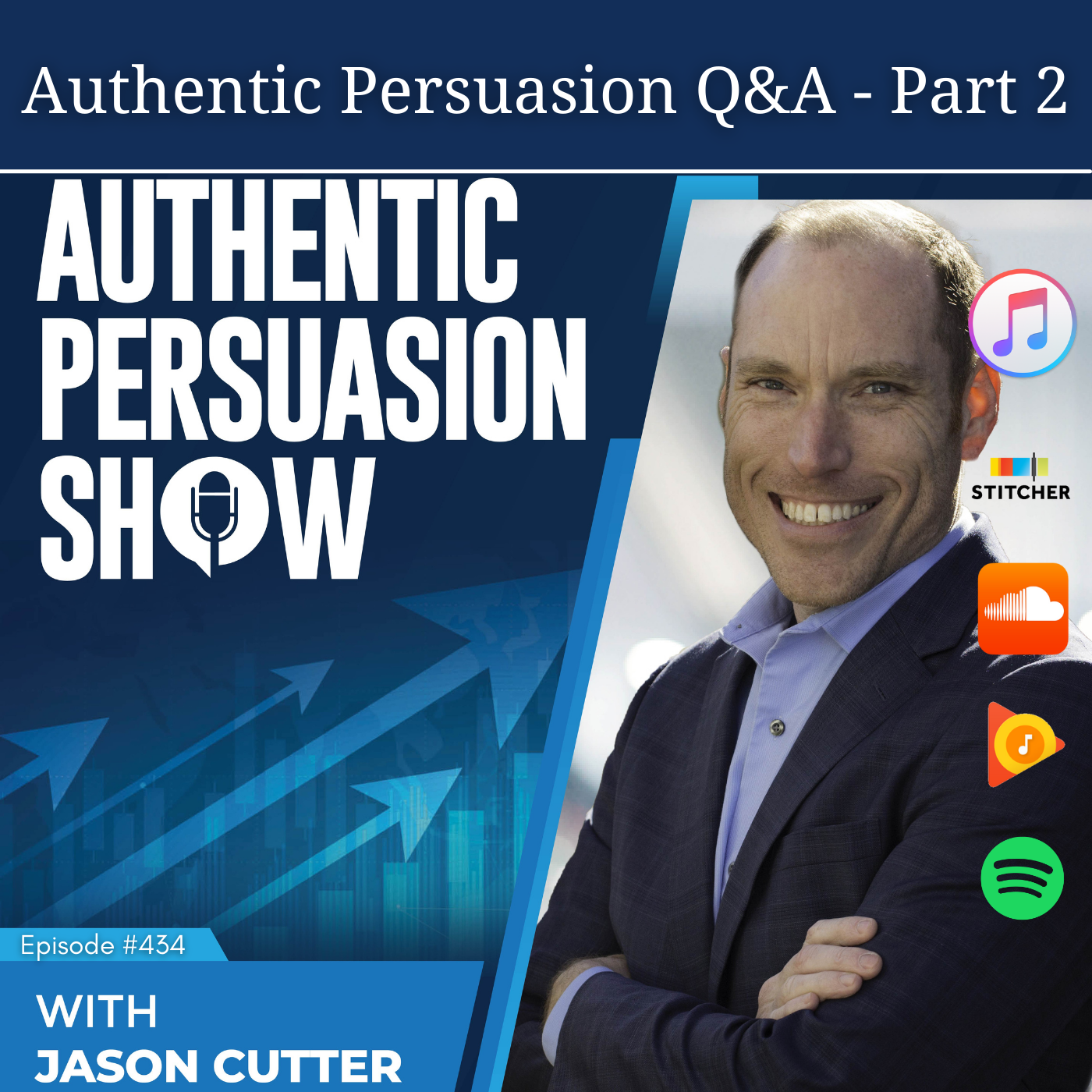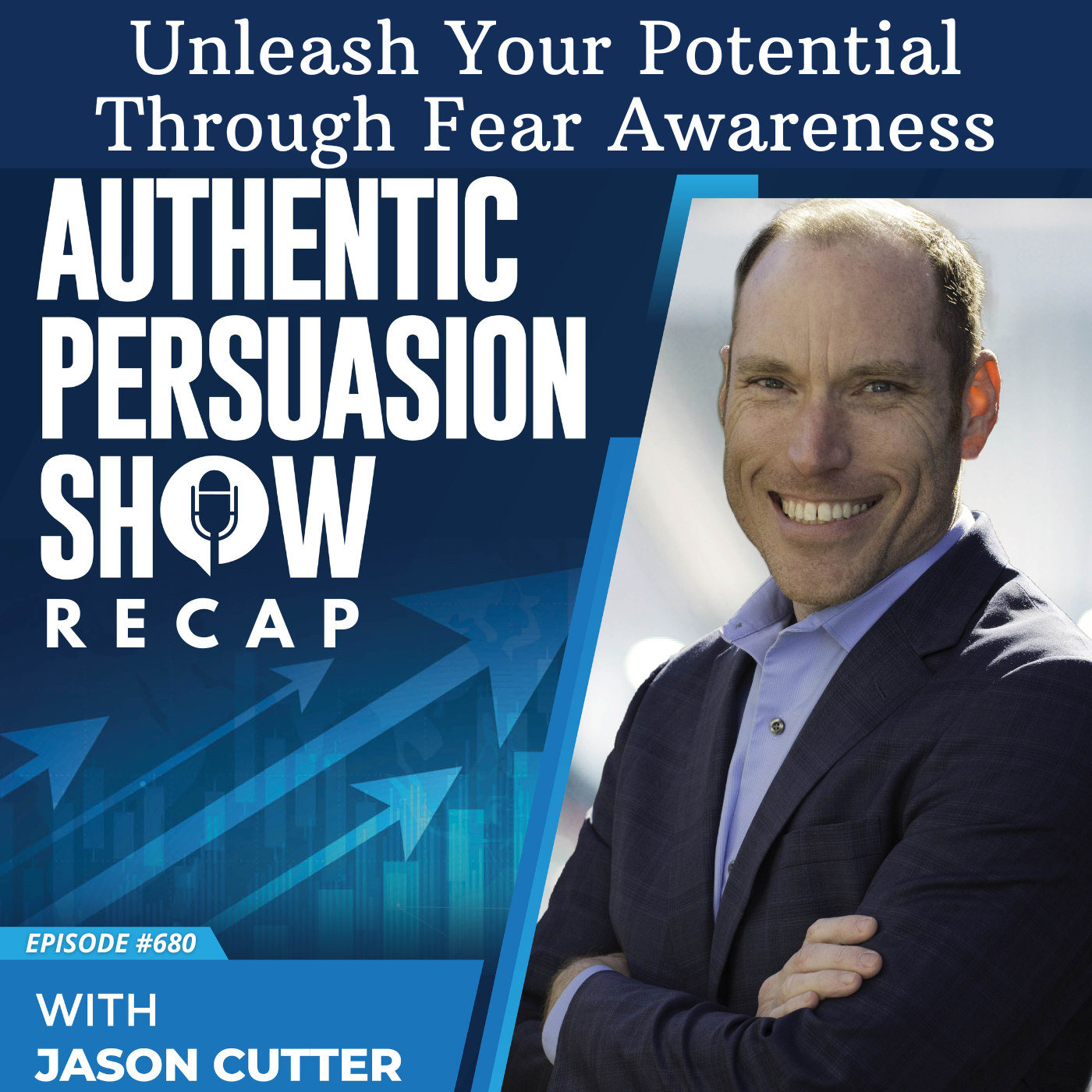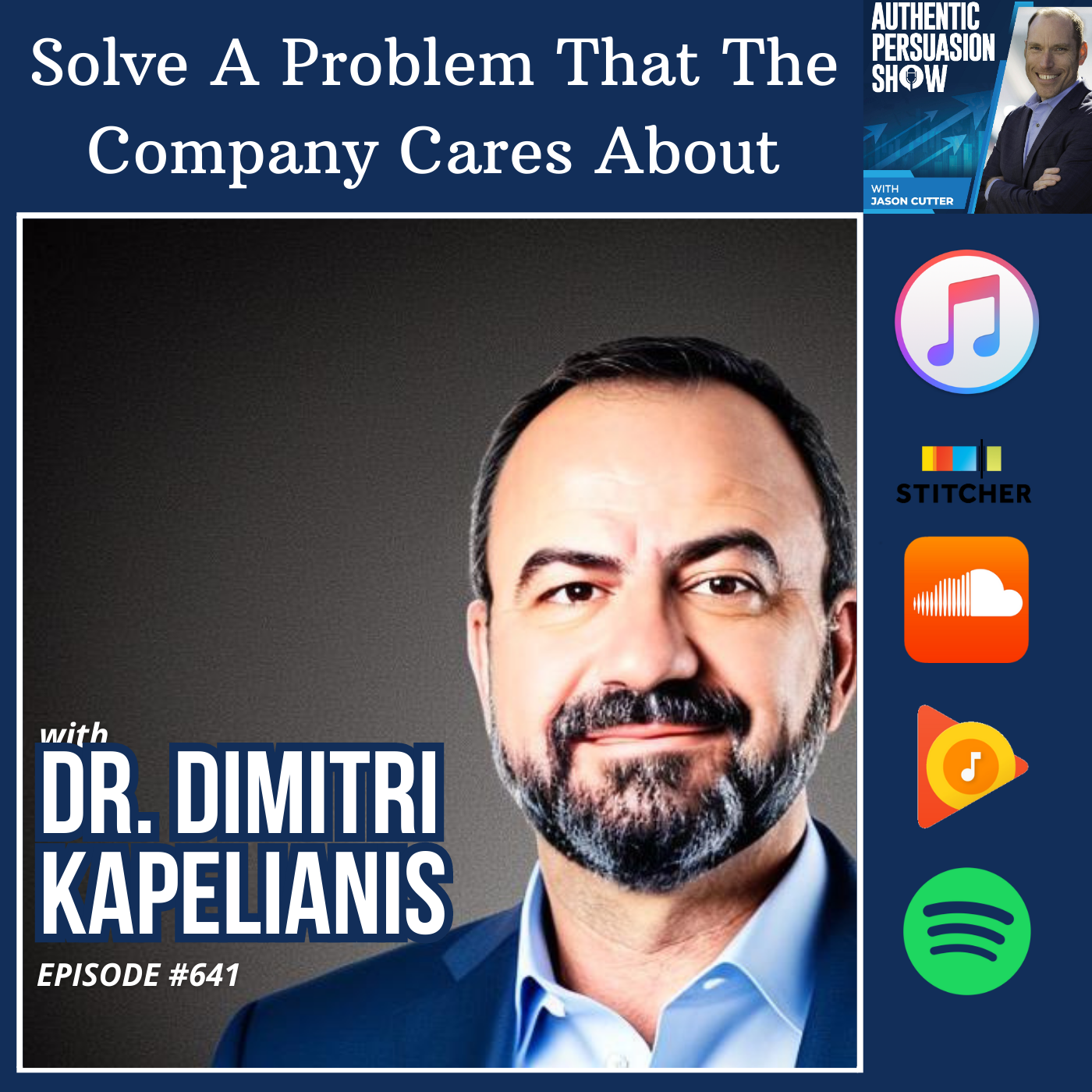Welcome to the authentic persuasion show on this episode. I want to replay part of a previous show. Maybe you heard the original full length episode, and this could be a great refresher and reminder, or maybe this is your first time hearing this content. And the timing could be just right to help you leverage authentic persuasion today in your role, no matter what.
Here's to your success.
This is the authentic persuasion show.
One of the biggest challenges I see with people who struggle with sales and selling effectiveness is they will at times, or most of the time end up spending too much time. In rapport building. So what they will do is they will get on a tangent, they will build rapport and they will keep talking about things and they will chew up a lot of time that might be necessary for the sales process.
But they're doing it on reports. So they're doing it. Talking about restaurants like that. There's one salesperson that comes to mind. He used to talk about restaurants. If somebody was in an area where he knew a restaurant and they would start talking about restaurants or foods, literally 10, 15, 20 minutes would go by and they'd still be talking about food.
And that's not good for several reasons. One is. You want people to know and trust you, you've got to warm it up and then you've got to move forward to the second step which we're going to cover starting next week. So you don't want to spend too much time there, partially because if you do, what can happen is you can actually enter into the friend zone I've seen this so many times right and we're all familiar with the friend zone when it comes to dating and relationships.
It's where somebody sees you as a friend and nothing more than that. It's why a lot of people don't like to do business with their friends because they know them so well. They're like, yeah, I know you and I like you. I definitely don't want to do business with you. In sales, that can happen a lot where you build so much rapport and it becomes so personal that now all of a sudden they see you as this person and not a professional, and it's not that we don't want them to see you as a person and respect you and appreciate you and trust you as a person and a fellow human and not identify you as a salesperson. That's not my point. The point is that we want them to make sure they always see you as a sales professional, right? It's if your doctor is just too buddy, then there's a point at which like, okay, you're building a lot of rapport. We're talking about a lot of things. Do you actually know what you're doing from a medical perspective? Or can you actually help me? Or are we just going to be best buds?
And so you've got to watch that. And I see a lot of people who end up going too far or too long with rapport. Rapport is not something you just do and then move on from and never do it again. You're going to do it throughout the conversations. It's all about continuing that rapport. And like I said, if you have multiple conversations with the same person through your sales cycle, you're going to start each one with some rapport, warming it up.
How was your weekend? What do you have going on this week? Hey, last time we talked, your son was at a soccer game. And how did that go? You're going to do those report things throughout. It's always going to be a constant. So don't feel like you have to spend so much time upfront doing it and then move on and never see it again or extend it too far.
So you want to make sure that you have the right amount when it comes to sales and what I see with people that struggle with moving on from the rapport step to the next phase is. That they're either nervous about it or they don't know how to transition. One of the things you want to be careful about is not giving this impression that you lack confidence in yourself or your sales process, and that is leading to why you're stuck in the rapport phase.
If you're spending a lot of time building rapport, and you notice that, what you might want to do is have somebody else listen to your conversation, join in your meeting, listen to the recordings of your phone calls, or your video chats that you have, and figure out Is it too much time spent in rapport as a result of not feeling confident about moving it forward and worried that the person might see you as a salesperson, or you just don't know what to do, or you're not sure.
So you want to make sure that you spend the right amount there and get some feedback, always get some feedback about where, how that rapport phase seems to go. The other part, like I said, is that a lot of people just don't have the training or the idea how to move forward and how to break out of that rapport step into the next step, which is really all about questions.
It's the discovery probing. I call it empathy, which I'll explain next week why I call it that. But a lot of salespeople struggle with that transition. How do I go from building rapport, talking about sports, talking about family, talking about food into business mode. And that transition sometimes can feel very abrupt.
And a lot of people struggle with that because it feels like, Oh, we were just being friends. Like now I'm jumping into business and that seems weird, right? That is like moving too fast. I've heard that a lot. It's Whoa, like we need to just ease into this. Sales process. And the key is having a transition.
And I talk about scripting a lot. This week in particular, I've been on many podcasts where that topic has come up. I am very pro scripting, which salespeople do not generally like the thought of. That's not why they got into sales. They got into sales. Just let me do what I do best. Don't try to give me a script or any process or anything like that.
Just let me go. And I strongly disagree with that attitude. I'm not saying you have to have everything word for word scripted, although that does work for some people, especially when they're new. At least have to have things scripted like the transition. So if you want help with this email me because every situation is different, but email me
[email protected].
I have a guide that helps with this, with these transitions, because what you want to be able to do is go from rapport into something like, all right, so then the first step in our process is. I want to ask you some questions and so on. And so you want to make sure you have that if there's anything that you're going to script.
It should be the monologues, which are things like the elevator pitch about your company, what you do, the services you provide the demo, the explanation in detail of what you do, like those things you all you want to have all scripted so that you do them consistently. And then the other part is these transitions, the transition from rapport to empathy, empathy to trust to hope and hope to urgency, and then, at the end, and so you want to make sure you have those scripted so that you can move them forward and keep the conversation going at all times.
![[708] Moving from Rapport to Empathy](https://episodes.castos.com/salesexperiencepodcast/images/1627692/c1a-4d8w-qxn4x0dxbd52-cx7wwj.png)


